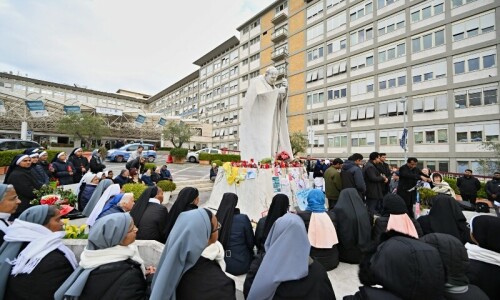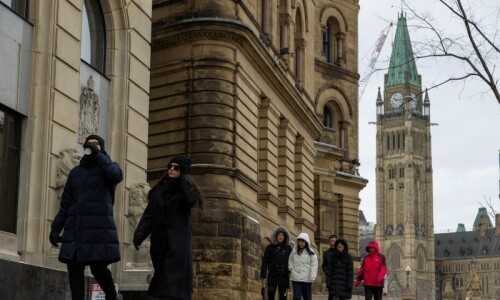IN February 2021, Covid-19 numbers started rising again in South Asia with official daily case counts rising beyond 400,000 in India, 6,000 in Pakistan and 7,500 in Bangladesh, straining health systems. The massive surge in India soon spilled over across the border into Nepal, leading to ‘apocalyptic’ scenes of overwhelmed hospitals.
The deadly surge in 2021 makes a regionally coordinated, evidence-driven strategy even more critical. If we are to move at the speed of the virus, it is necessary to construct multi-stakeholder regional coalitions to devise new solutions and frugal innovations that can be applied across South Asia. Is that possible, given the troubled history South Asian countries share? Today we write a positive, hopeful story about a new consortium we are involved in, with core team members from India, Pakistan, Nepal and Bangladesh jointly developing Covid-prevention strategies. The emerging consortium provides an example of how neighbours can work together for mutual benefit, despite political differences.
Every country in South Asia has struggled to ensure consistent mask-wearing to stem the spread of Covid. Beliefs, priorities, traditions and aversions to behaviour change are more similar across South Asia than we care to admit. These commonalities mean that interventions that are successful in changing behaviour in one place are highly likely applicable in other parts of the subcontinent. We have experienced this with the Grameen Bank microcredit model which was an indigenous South Asian innovation that spread rapidly. India’s digitised social protection ecosystem with Aadhar IDs and Jan Dhan accounts serves as a model (albeit with cautionary notes) for other countries in the region. E-governance programmes in Pakistan, like eVaccs and Citizen Feedback Model have been replicated and provide strong models ready to be deployed regionally and globally.
The new pan-South Asian consortium in response to Covid-19 evolved out of an experiment conducted in Bangladesh, that successfully changes social norms around mask-wearing in rural communities. The four-part NORM intervention was originally examined in a cohort of 350,000 individuals across 600 villages. A combination of free mask distribution, information, reinforcement in public spaces, and role modelling by community leaders led to large, sustained increases in mask usage that persisted beyond the period of active intervention. BRAC is implementing the model to reach 81 million people across Bangladesh.
Partnerships are necessary to beat the virus.
The team is now partnering with several organisations across Pakistan, India, Nepal and Bangladesh to start adapting the model to fit each country’s context, and set up partnerships to pilot, implement, tinker and learn. The Self Employed Women’s Association quickly implemented the model to reach over 1m members in Gujarat. An additional 1.5m masks were shipped from Bangladesh to support SEWA’s outreach to other states. Lahore’s commissioner worked with our research team to adapt the NORM model to an urban setting, and devised new creative ideas to improve effectiveness. For example, they have prepared to deliver masks at doorsteps using Pakistan’s postal service, and are targeting beneficiaries on the basis of billing information from utility companies. Philanthropists and private corporations are sponsoring the masks. We are re-importing some of these innovations back to Dhaka, inspiring further scale-ups in Dhaka, Chittagong, Rajshahi and Kathmandu.
Effective mask promotion requires visits to thousands of remote villages, and those same visits can be used to prepare for more effective community-based healthcare responses. To that end, a host of physicians, scientists and community-based organisations created the Swasth Community Science Alliance, committing to pragmatic, science-based protocols to manage mild and moderate cases of Covid-19 in rural India, where institutional healthcare access is limited.
NORM implementation teams based in Lahore, Ahmedabad, Peshawar, Hyderabad, Dhaka, Kathmandu and Delhi are learning from each other’s successes and failures. The process usually starts with the the original research team sharing evidence-based insights with implementing agencies, as the implementers adapt the design, co-create localised implementation protocols, and are threaded together in a collaborative environment across countries where each implementing team iterates while learning from others’ prior iterations, and all our sub-teams are connected in an active learning system that allows us to course-correct in real time. This coalition is poised to change mask-wearing norms amongst hundreds of millions of people across all of South Asia.
The Covid-19 crisis has increased policymakers’ appetite for evidence-informed policy measures that can be quickly implemented to stem transmission. This drive for quick action has created some unprecedented opportunities for enhanced cross-country collaborations that are normally hampered by politics and mistrust. We hope that the consortium that first formed around mask-promotion, and now around science-based treatment approaches, and that developed quickly and organically without regard to national boundaries, can serve as a model for a broader and deeper collaborative ecosystem that endures. We need to come together to solve problems that affect us all. Let the lasting legacy of this pandemic be a new era of partnership in social innovations that can benefit all South Asians.
Mushfiq Mobarak is professor of economics, Yale University, and director of the Yale Research Initiative on Innovation and Scale.
Twitter: @mushfiq_econ
Maha Rehman is director of policy at the Mahbub-ul-Haq Research Centre at the Lahore University of Management Sciences.
Twitter @MahaRehman1
Satchit Balsari is assistant professor of emergency medicine, and of global health and population, at Harvard University.
Twitter: @satchit_balsari
Published in Dawn, June 17th, 2021













































